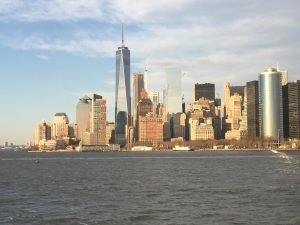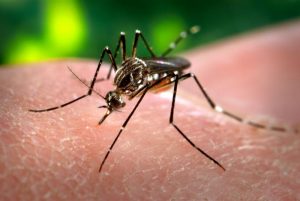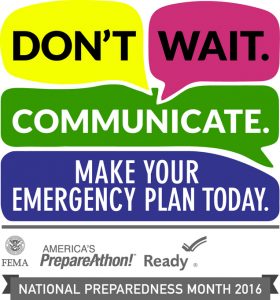 A remembrance:
A remembrance:
Fifteen years ago today at around 8:00 Minneapolis time, I was in the Intensive Care Unit at HCMC. I was a medical resident on that day doing my rotation in Nephrology and was visiting a critically-ill patient in the ICU with really bad kidney problems. My attending physician on that day was my med school adviser and my residency program director, Dr. Morris Davidman. Though no longer practicing, he’s still a mentor, role model and friend. He was the first person I talked to about what was certain to be a much-changed world that day.
I remember that day well, and today marks its 15th anniversary. That is long enough that my own kids were too young to remember and a whole generation is growing up not having been born yet in 2001. To me that’s a strangely weird thought. I’m not going to write about those events per se, as enough is already written and said about it and I have no insight whatsoever that each of you reading this doesn’t already have. And I’m not posting pictures of the tragedy after reading a provocative blog post from a New Yorker basically saying that the none of that is helpful . . . we all know what it looked like. Instead, I’m showing the NYC skyline as it looks now from my recent ride on the Staten Island Ferry. I do love New York.
That being said, I think it therapeutic and natural for us to remember where we were, what we were doing, and then stop and remember those who were impacted so directly – people in New York City and Washington, people on those planes, their loved ones, the firefighters and cops and first responders. Perhaps take a few deep breaths and remember that though we cannot prevent bad things from happening, we can still dedicate ourselves to doing good in the world and remember the terrific and loving people in our lives.
So I remember standing next to Dr. Davidman watching the TV above the head of a critically-ill and comatose patient.
Do you remember where you were?
National Preparedness month
“Americans have been tested by trial and tragedy since our earliest days — but year after year, no matter the hardship, we pull through and forge ahead.”
President Barack Obama
September is National Preparedness month so that was the topic today on our Healthy Matters radio broadcast. I guess it was apropos given that today is September 11. To help me, I invited Mark Lappe, the Director of Emergency Management here at my hospital. Did you know most hospitals have a Department of Emergency Management? I knew my hospital does, given that it is a major Level I trauma center, but I guess I didn’t know that most other hospitals do as well.
We talked about community-wide preparedness as well as the steps hospitals take to stay prepared for bad situations. Like the generators that kick in at HCMC (my hospital) within 2 seconds of a power outage across a campus spanning 6 downtown city blocks. Wow. Then we moved to emergency preparedness in your own homes, so as promised, I’m going to put some links here for more information. You’ll find them in a bit. In the meantime, listen to Mark on the podcast if you wish.
To read President Obama’s full proclamation, click here.
Why worry?
When I think about 9/11 and about the other disasters that we hear about just about every week in the news, I often wonder if it makes any difference whether we plan for them or not. Have you ever felt that way? After all, between flooding in Louisiana and shootings in Orlando and terrorism on the French Riviera, it’s easy to feel like we live in a whole new world in which we are powerless to defend ourselves.
But I resist that thought whenever it hits.
Certainly, there are loads of events that we are powerless to either predict or prevent. That being the case, I think I find myself drawing two conclusions:
- I am not deterred by awful events in living my life. I will continue to travel, attend big celebratory events, meet new people, welcome the immigrant to our community, learn about new cultures, enjoy fine art, and most of all see new places in the world.
- But I think it wise to listen to those among us who have expertise in keeping us safe, like Mark Lappe on my radio show today.
The first point reflects my belief that we need to keep on living boldly and not let scary things paralyze us.
I know terrorism is real but the terrorists score a victory when we demonize immigrants, pre-judge people in the name of safety, allow the government to invade our privacy and scale back our liberties . . . all out of fear. Benjamin Franklin was right when he said:
“Those who would give up essential Liberty, to purchase a little temporary Safety, deserve neither Liberty nor Safety”
And the Zika virus is also real and scary. But we have the knowledge, if perhaps not the willpower, to do something about it, so let’s do it! See below for one suggestion on how you can act.
And earthquakes and tornadoes and flooding are real as well. But we can do something about climate change and when natural disasters do occur, we can do like we always do and help each other out.
Which leads me to the 2nd point above, now that I’ve been on my soapbox a little bit (sorry!) and that is that a bit of advance planning seems to make some sense. So now onto some resources you may wish to check out in keeping your family safe and secure during emergency situations.
Great resources and a call for action
A good place to start is ready.gov which is a comprehensive site from the US Department of Homeland Security. Click around the site for a while; it is really comprehensive with information on a variety of topics for you and your family.
One of the recommendations from the experts to prepare your own family for emergencies is to make an Emergency Plan. Get help with making a plan for your family here from FEMA. There are printable checklists of supplies you should have in an Emergency Kit. (One aside . . . those of you who watch The Big Bang Theory may know that Sheldon has not one, but two, emergency kits in his apartment. And he’s a genuine genius.)
We learned on the show that texting is preferable to calling on the phone if you or a loved one is caught in a disaster situation. Teach your kids to text you “I’m OK and I am currently at location here” if you ever find yourself separated. Phone lines, even cellular lines, often don’t work in disasters! It’s also a great idea to write down all your contact information. The FEMA site has some downloadable sheets to help with as well.
A call for action
I encourage you to contact your member of Congress and US Senator and urge funding for overcoming the Zika virus. We have the medical knowledge and the public health knowledge to solve the spread of Zika. We just need our leaders to act! Or if you don’t favor such an approach (hey, people have different views on how best to act and that’s OK) then tell your elected officials your own view. It’s no longer just in other countries (though we should have acted to help other countries long before this), it is our neighbors in Florida and Puerto Rico we are talking about with Zika.

Public enemy #1, Aedes aeygptii
So some thoughts on risk and planning, disasters and planning for disasters. I admit you probably have as much insight into these issues as I do, which I’d love to hear! Next post will be about something medical. Since this is a medical blog and all.
Thanks for stopping by!
David

